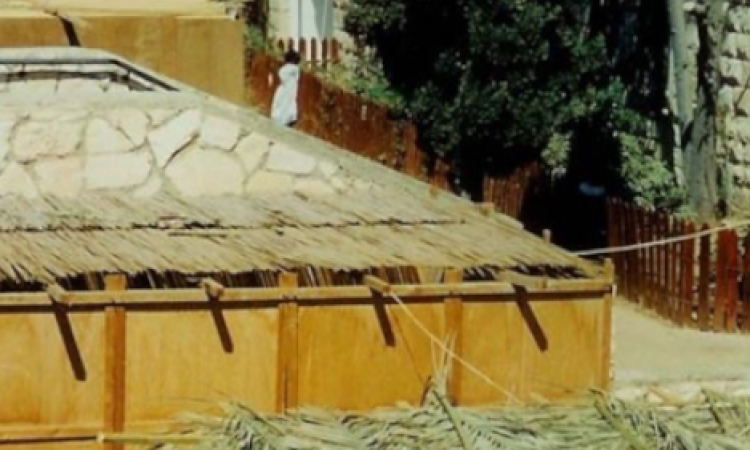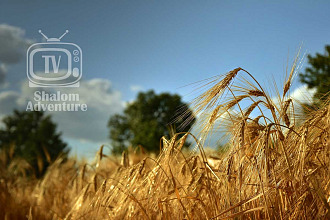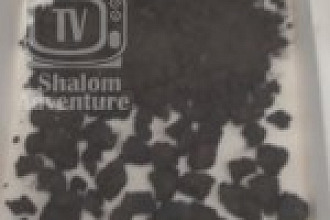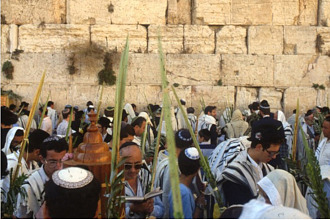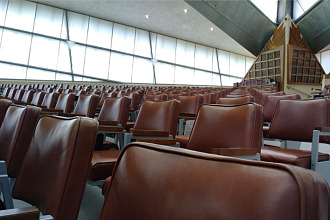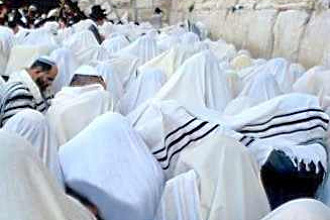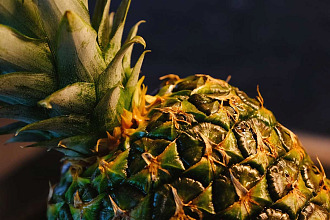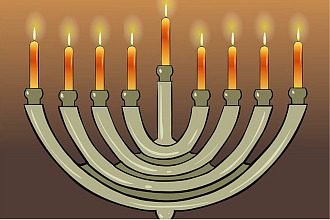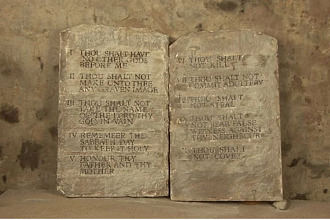The sukkah, a fragile hut built of branches and leaves, is the main feature of the Sukkot festival.
The origin of the practice of "dwelling in booths" during the festival is not certain. The Pentateuch (fifth book of the Bible) tells us that the sukkah is a reminder of days when Jews wandered in the desert and lived in tents. Many scholars believe this to be a forced interpretation of the word sukkah, and that if the sukkah was really connected with the Exodus, Passover would be the time for dwelling in booths. The Jewish philosophers Philo and Maimonides explained the sukkah as a symbol erected to bring evidence of misfortune at a time of good fortune. Still others believe that the sukkah reminds us that Jews live everywhere only temporarily, wandering eternally.
The sukkah dwelling today, wherever it is located, retains the feeling of impermanence. The celebration calls for dwelling in sukkah for seven days. While dwelling means eating and sleeping, most people limit their activities to eating and study.
Any lightweight material sturdy enough to withstand average regional winds can be used to build the walls of the sukkah. Walls must be between 35 inches and 35 feet high. No Mazuzah is placed on the door jambs.
The roof is made of leaves and branches. Openings must be left in it so that the light of the sun, moon, and stars can be seen. In celebration of the harvest, the sukkah is decorated with fruits and vegetables hung from the roof and the walls.
Hospitality is a basic element of the holiday. An essential ingredient of Sukkot is sharing meals with others, so there must be room for a table and chairs in the sukkah since we eat and visit with friends in it.
Originally found here
Picture from here

